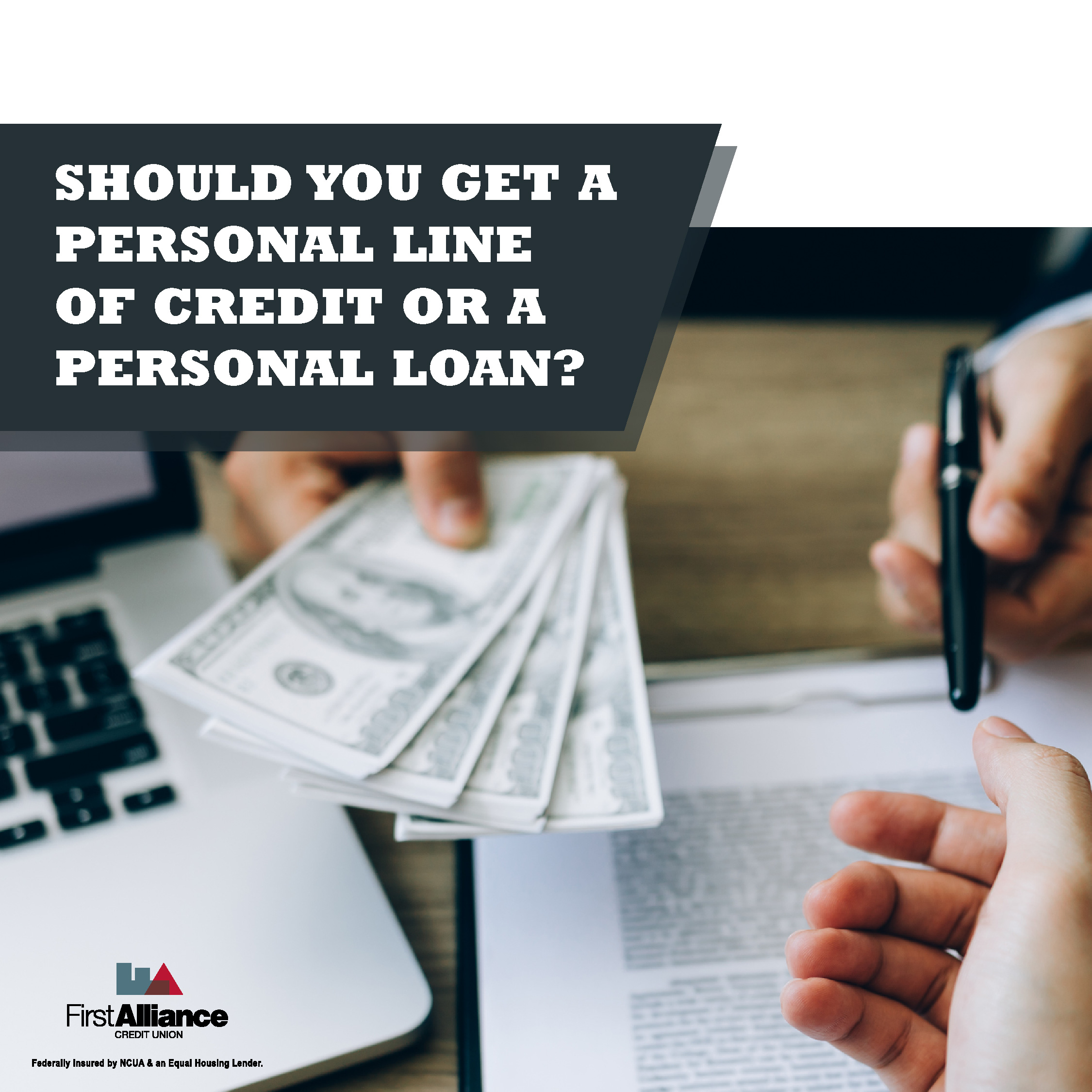Should I use a Personal Line of Credit or a Credit Card?
You probably know about personal loans and how versatile they can be, but you might not know about personal lines of credit. Personal lines of credit...
3 min read
 Chris Gottschalk
:
Jul 7, 2020 6:00:00 AM
Chris Gottschalk
:
Jul 7, 2020 6:00:00 AM

One of the best financial tools to help you keep your head above water in uncertain times is a personal line of credit. It’s like a personal loan in that you can use the money you borrow for almost anything from funding a home remodeling project to consolidating debts.
Instead of taking out a loan in one lump sum, however, a personal line of credit lets you borrow up to a certain limit determined by the financial institution. You can draw any amount of money you want up to your credit limit and use it any way you see fit. Once you repay the principal you’ve borrowed, you can borrow it again if you need to, and you only have to pay interest on the amount you’ve borrowed.
If you think this sounds like a credit card, you’re not alone. However, it’s also similar to another financial tool—the home equity line of credit, also called a HELOC. A home equity line of credit works almost the same way as a personal line of credit, with one major difference. When you get a home equity line of credit, you use your house as collateral, and your credit limit is determined by the value of your house.
While we’ve talked about whether you should use a personal line of credit as opposed to personal loans or credit cards, the differences between a home equity line of credit and a personal line of credit aren’t about whether one is more suited for your purposes than another. Instead, it’s more about who can qualify for each line of credit and what you’re willing to risk.
If you’re wondering whether to get a personal line of credit or a home equity line of credit, the first thing to consider is whether you own equity in a house. In other words, do you own a home and is the amount left on your mortgage less than the worth of your home? If you don’t have equity in your home, you won’t be able to get a home equity line of credit.
A personal line of credit doesn’t require you to put up anything as collateral. However, since this is riskier for financial institutions, lending advisors will examine your finances more thoroughly than they would if you were applying for a home equity line of credit. The financial institution will also charge you a higher rate of interest on the money you borrow.
If you’re in the position of being able to choose between one or the other, a home equity line of credit does have some aspects that might make it more appealing than a personal line of credit. First, you’ll get a lower interest rate with a home equity line of credit. Secondly, the interest you pay on a home equity line of credit may be tax deductible but the interest you pay on a personal line of credit is not.
While home equity lines of credit seem better than personal pines of credit (provided you own a house in the first place), they do have a couple of drawbacks.
 The first drawback is that the approval process for a home equity line of credit takes longer than the approval process for a personal line of credit. When you apply for a home equity line of credit, you'll need an appraisal of your home so the financial institution can determine how much credit you'll have available. The process can take a few weeks.
The first drawback is that the approval process for a home equity line of credit takes longer than the approval process for a personal line of credit. When you apply for a home equity line of credit, you'll need an appraisal of your home so the financial institution can determine how much credit you'll have available. The process can take a few weeks.
A personal line of credit, on the other hand, has a much shorter approval time. In fact, you can usually get approved on the same day you apply.
The second, and more serious drawback, is that if you default on your line of credit, the financial institution can foreclose on your house.
Granted, you should know how you’re going to make payments on any loans you take out. However, if you aren’t 100% sure you can pay off a home equity line of credit, you might want to apply for a line of credit instead. You’ll still be in trouble if you default on the loan, but at least you’ll be able to keep your house.
Personal lines of credit and home equity lines of credit are very useful financial tools. Either of them can help you finance a project, consolidate your debts or even get you through uncertain times. Which one you choose to get depends on whether you own a house and how confident you are you’ll be able to pay off your line of credit.
If you’d like to get a home equity line of credit or a personal line of credit, become a First Alliance Credit Union member today. We offer personal lines of credit with no annual fees and low interest rates as well as open-ended home equity lines of credit you can manage through online banking.

You probably know about personal loans and how versatile they can be, but you might not know about personal lines of credit. Personal lines of credit...

One of the most versatile loans you can get from a financial institution is a personal loan. You can use the money for anything from funding your...

Financing unexpected life events can be easier with a line of credit loan. You only advance funds when you need it, and only make payments when you...